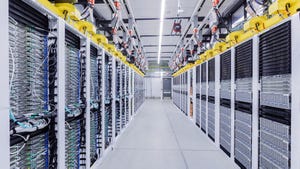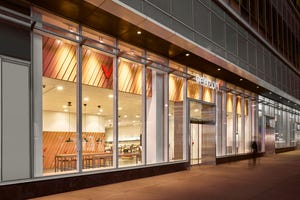Pssst! Want a Used Base Station?
Trade in second-hand mobile network kit grows as operators cash in on redundant stock
February 28, 2003

Every cloud, they say, has a silver lining. The telecom industry downturn has provided a business opportunity for second-hand network infrastructure trader Somera Communications (Nasdaq: SMRA), which is turning a profit from buying old and unused kit from carriers and selling it on to others.
In Europe, trade is brisk in GSM base stations, according to Ron Patterson, VP and managing director of the company's European business. Especially popular are refurbished LM Ericsson (Nasdaq: ERICY) and Siemens AG (NYSE: SI; Frankfurt: SIE) GSM base stations.
The company, which trades mainly in North America and Europe, is turning over almost $200 million a year (fiscal year 2002, down from $221 million in 2001), about $35 million of which is European business. About 70 percent of that European business (about $24 million) is in refurbished wireless infrastructure kit (base stations and wireless backhaul equipment).
This may not be the biggest business in the world, but the company had hit 29 consecutive quarters of profitability up to the fourth quarter of 2002, when restructuring charges took it into the red following a downturn in its North American fixed-line equipment business. But the company expects to record a profit in each quarter of 2003, and many of its sales show margins of more than 50 percent, according to chief marketing officer Brandt Handley.
So who are Somera's customers? Well, it buys and sells from fixed and wireless carriers alike. In Europe, "we are dealing with all the major mobile operators," says Patterson. "Many of them have unused equipment sitting in warehouses doing nothing. They need cash and so are prepared to sell this excess inventory. They have quite a lot of capital tied up in equipment they don't need or aren't using, and this is a way they can realize some cash. We are paying between 10 percent and 15 percent of the original price to take it off their hands, for cash."
Once acquired, the Somera team tests the kit in its Amsterdam facility, refurbishes the equipment, and sells it on to other carriers that need replacements for, or additions to, existing network gear. "The base stations we trade in are a few years old. Sometimes the carriers just need particular parts, and we supply that, too," says Patterson.
This relationship with the carriers has led to the provision of additional services, such as network optimization and integration. Some operators have costly redundancy in their backhaul systems that they simply don't need, and Somera often finds itself making money from helping the operators cut costs.
Somera is currently engaged with Italian operator Wind Telecomunicazioni SpA, which has some excess Nokia Corp. (NYSE: NOK) and Nortel Networks Corp. (NYSE/Toronto: NT) kit on its hands following its acquisition of some units of failed greenfield operator Blu (see Pioneer Predicts GigE Growth and Blu Acquisition Completed).
Patterson notes that Somera has had to reject some Nortel equipment on occasion "because there's no demand for it. It is very difficult to sell on."
The main demand in the fixed sector is for Cisco Systems Inc. (Nasdaq: CSCO) routers. "And there is still demand for Lucent Technologies Inc. [NYSE: LU] optical gear," says Handley, but Lucent has wound down a lot of its optical business, so providing an opportunity for Somera to fill in the gaps (see Lucent Optical Boss Leaves).
— Ray Le Maistre, European Editor, Unstrung
You May Also Like










